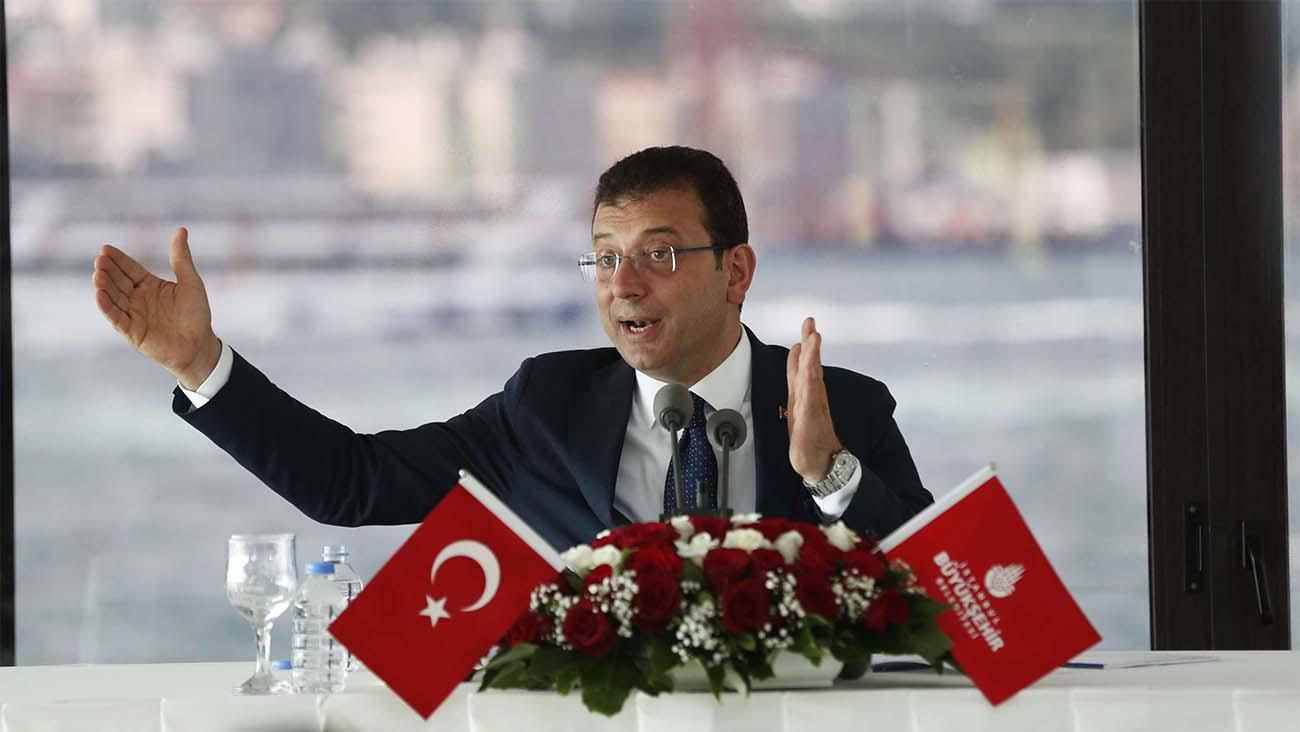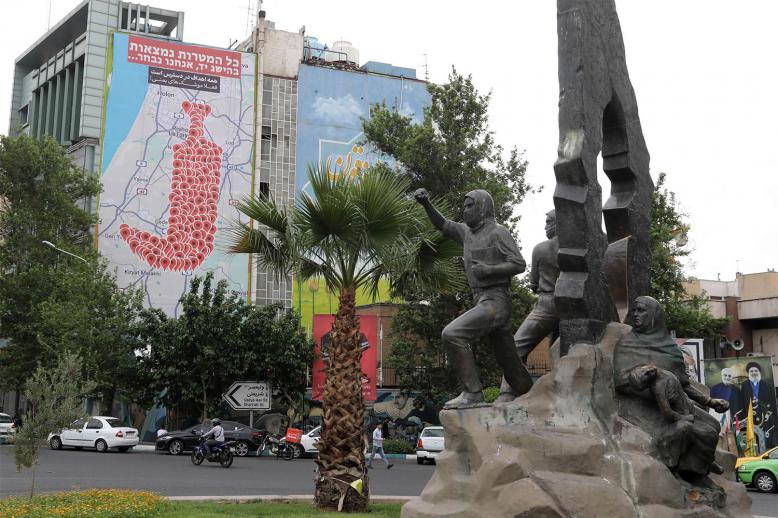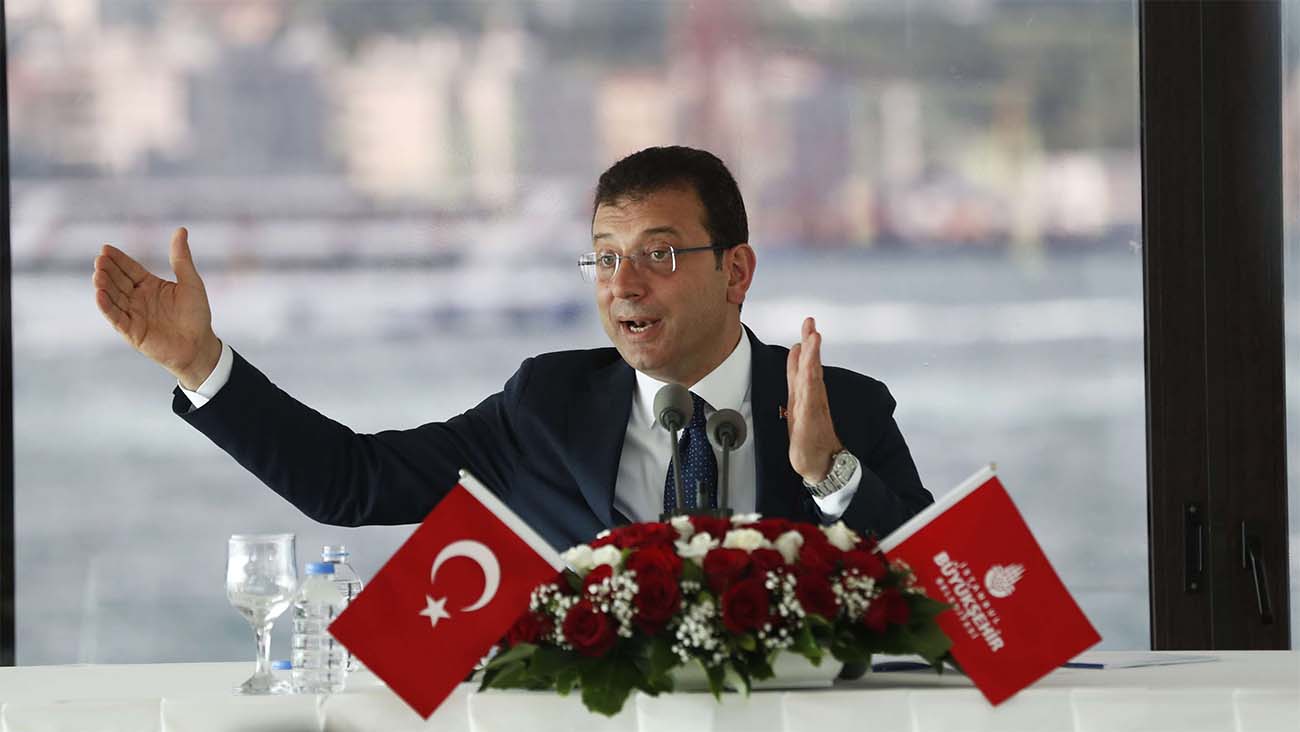Turks wonder if Istanbul vote was fatal blow to Erdogan
ISTANBUL — Following a landslide win for the opposition in a mayoral election in the metropolis Istanbul, some Turks wonder whether President Recep Tayyip Erdogan can recover from the most stinging defeat.
Kadri Gursel, a prominent opposition journalist, called the result of the June 23rd election a “political tectonic shift.” Author Tayfun Atay commented Turkey was “at a point of ‘impending death’ of an exhausted government.” At least one lawmaker from Erdogan’s ruling Justice and Development Party (AKP) demanded “self-criticism” and called for a return to democratic principles, in reference to Erdogan’s authoritarian tendencies.
As the results became clear, parts of Istanbul erupted in celebrations, with people dancing in the streets or honking the horns of their cars.
Opposition politician Ekrem Imamoglu, a 49-year-old former businessman and mayor of the Istanbul district of Beylikduzu, won 54% of the vote in the election on June 23 for mayor of Istanbul, nine percentage points or 800,000 votes ahead of the AKP’s Binali Yildirim, who reached 45%.
Imamoglu’s victory means that Istanbul, a city of 16 million people that is home to a third of Turkey’s economy, will have its first non-Islamist mayor since 1994.
The election was a re-run vote after the electoral commission, under pressure from Erdogan’s government, annulled the regular poll of March 31, which Imamoglu had won with a narrow margin. Critics accused the 65-year-old Erdogan, who started his career in Istanbul when he became mayor 25 years ago, of refusing to give up control of the city, a crucial source of patronage for the AKP.
The decision to repeat the election upset many AKP members as well. Provisional results on June 23 showed that Imamoglu received majorities even in districts of Istanbul known to be AKP strongholds.
Even though Erdogan did not run in the election he was a central figure because he pushed for the annulment decision and took part in the AKP campaign with a last-minute decision to hold rallies in Istanbul when opinion polls started to show Imamoglu’s solid lead in the days before the vote.
The president, who has won almost all elections in Turkey for more than a decade, appeared to be stunned by the result. For the first time since his AKP came to power in 2002, Erdogan did not face the cameras after an election, congratulating Imamoglu via Twitter instead.
Karabekir Akkoyunlu, a Turkish academic, commented on Twitter that Erdogan had suffered a massive setback. “After 31 March, I said Erdogan would either lose Istanbul or legitimacy,” he wrote. “He managed to lose both. Incredible.”
In his first public appearance since the AKP’s defeat, Erdogan vowed on June 25 to listen to the “nation’s lessons” and to find out why the party fared poorly.
A high-ranking opposition lawmaker said that “nothing will be the same” in Turkish politics after the Istanbul election. Speaking on condition of anonymity, the lawmaker said it was hard to understand why Erdogan had insisted on repeating the Istanbul election in the first place.
Deniz Zeyrek, a respected journalist, said in a television interview that former Finance Minister and AKP co-founder Ali Babacan was preparing to set up a new party that could attract AKP lawmakers and voters. Ahmet Davutoglu, a former prime minister, is expected to present his own party before the end of the month, the daily Sozcu reported.
Analysts say the loss could set off a cabinet reshuffle in Ankara and adjustments to foreign policy. It could even trigger a national election earlier than 2023 as scheduled.
Turkey’s economy is now in recession and the United States, its NATO ally, has threatened sanctions if Erdogan goes ahead with plans to install a Russian missile defence system, S-400.
Speaking after meeting his US counterpart Donald Trump on the sidelines of the G20 summit in Japan on June 29, Erdogan said Turkey would stick with the S-400 project. Delivery was expected to start in the first half of July, Erdogan said, adding that Trump had reassured him there would be no US sanctions.
But Trump said after the meeting that US concerns remained. Washington says that if by July 31 Turkey does not give up on the S-400 system, Ankara would be blocked from purchasing F-35 fighter jets and Turkish pilots currently training in the US would be expelled. “It’s a problem, there’s no question about it,” Trump said about Turkey’s plans.
Imamoglu told his supporters that he would work for all people in Istanbul, regardless of their political preferences.
“Today, 16 million Istanbul residents have renewed our faith in democracy and refreshed our trust in justice,” Imamoglu told supporters.
Imamoglu, who waged an inclusive campaign and avoided criticising Erdogan, said he was ready to work with the AKP to tackle Istanbul’s problems, including its transport gridlock and the needs of its more than 500,000 Syrian refugees.
“In this new page in Istanbul, there will from now on be justice, equality, love, tolerance, while misspending (of public funds), pomp, arrogance and the alienation of the other will end,” he said.
Ates Ilyas Bassoy, the Republican People’s Party (CHP) strategist behind the Imamoglu campaign, said in an interview that the party had answered Erdogan’s fierce rhetorical attacks with “smiles.” Bassoy, who calls his concept “Radical Love,” said the CHP won because it took voters’ issues seriously and refrained from aggressive and dividing rhetoric.
The handover of power in the mayor’s office could shed further light on what Imamoglu said was the misspending of billions of lira at the Istanbul municipality, which has a budget of around $4 billion. CHP officials say the AKP’s city administration of Istanbul handed millions of dollars’ worth of subsidies to organisations that are close to Erdogan.
The AKP’s defeat came almost exactly one year after Erdogan and his party scored major victories, winning parliamentary and presidential elections on June 24, 2018. That election ushered in a presidential system that critics say has led to a one-man-rule under Erdogan and could be part of the reason the AKP lost on June 23.
The result could increase tensions within the AKP. Bulent Turan, an AKP lawmaker from Canakkale in western Turkey, said on Twitter those responsible for the defeat should be held to account. Mustafa Yeneroglu, another AKP member of parliament, called for “self-criticism” and a return to policies concentrating on “rationality, the rule of law, the separation of powers and basic rights.”
Thomas Seibert is an Arab Weekly contributor in Istanbul.
Copyright ©2019 The Arab Weekly






